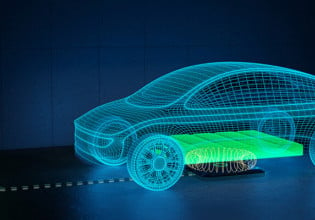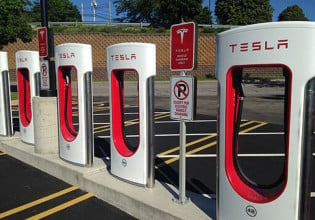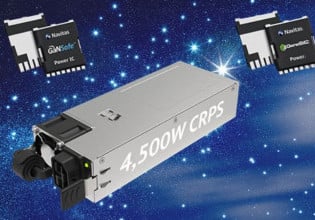Infineon Leverages Coreless Transformer Design in Solid-State Isolators
The family of solid-state isolators uses coreless transformer technology to ramp up switching speeds while lowering power dissipation by up to 70%.
Infineon has introduced a family of solid-state isolators (iSSI) that leverage a coreless technology to improve device performance and efficiency. This article reviews the products and the inner workings and benefits of solid-state isolators.
Infineon’s coreless transformers. Image used courtesy of Infineon
Infineon Unveils Solid-State Isolators
Infineon designed its family of solid-state isolators to facilitate faster and more reliable circuit switching. The devices offer a suite of protection features surpassing those available in traditional optical-based solid-state relays (SSR), according to the company.
For example, the solid-state isolators support 20x greater energy transfer than their predecessors. Additionally, these isolators provide 50x lower RDS(on) than existing optically controlled solutions, enabling their deployment in applications requiring higher voltage and power. Finally, Infineon reports the iSSIs offer superior performance and reliability over electromagnetic relays by eliminating moving parts, resulting in 40% lower turn-on power.
Block diagram of the iSSI20R11H. Image used courtesy of Infineon
Infineon states the family of iSSIs is compatible with the other products in Infineon’s switching portfolio, including CoolMOS S7, OptiMOS, and linear FET portfolios. When paired with Infineon’s CoolMOS S7 switch, for example, the isolator drivers facilitate switching designs with significantly lower resistance than optically driven solid-state solutions. This translates into systems with longer lifespans and lower ownership costs. In applications driving the gates of Infineon’s MOS-controlled power transistors, power dissipation can be reduced by up to 70% compared to solid-state relays using silicon-controlled rectifiers (SCR) and Triac switches.
Infineon's solid-state isolators enable custom solid-state relay configurations that can control loads exceeding 1,000 V and 100 A. This capability, along with the device's coreless transformer technology, makes the isolators particularly suited for use in advanced battery management systems, energy storage solutions, renewable energy systems, and industrial and building automation applications.
Solid-State Isolators: A Linchpin in Modern Designs
Solid-state isolators prevent unwanted electrical current feedback in various systems. These components leverage the properties of solid-state electronics, such as semiconductors, to enable one-way flow of current. This capability is essential in applications ranging from signal processing to power supply design, where maintaining the integrity and isolation of electrical signals is paramount.
At the core of solid-state isolators is the principle of electrical isolation through semiconductor materials. Unlike mechanical relays or optoisolators that might use physical movement or light as a means of achieving isolation, solid-state isolators use electronic components that do not require moving parts. This approach significantly enhances reliability and reduces response times. For example, by employing methods such as capacitive or magnetic coupling within a semiconductor substrate, isolators can effectively block high-voltage transients while allowing the desired signal or power flow to pass unimpeded.
An example of electrical isolation.
Solid-state isolators have many advantages over traditional electromechanical relays or optoisolators. First, their lack of moving parts minimizes wear and tear, leading to longer lifespans and higher reliability. They also offer faster response times, which is critical in high-speed signal processing applications. Additionally, solid-state isolators provide better performance in terms of size, energy efficiency, and noise immunity, making them highly suited for miniaturized and sensitive electronic systems.
Finally, solid-state isolators enhance safety in electrical systems by providing superior isolation capabilities. This is particularly important in medical devices, industrial control systems, and power grid applications, where protecting sensitive components and human operators from high-voltage transients is crucial. The ability to integrate these isolators into semiconductor chips also aligns with the trend toward more compact and integrated electronic systems.
A Versatile Option for Custom Solid-State Relays
With its new family of iSSIs, Infineon hopes to provide engineers with tools to support more efficient and performant high-voltage and power designs. Thanks to a coreless transformer design and intentional design compatibility with other Infineon switching products, the iSSIs can effectively replace reed relays and electro-mechanical relays. Designers can instead combine the iSSIs with a power switch to function as a flexible circuit element for custom solid-state relays.









